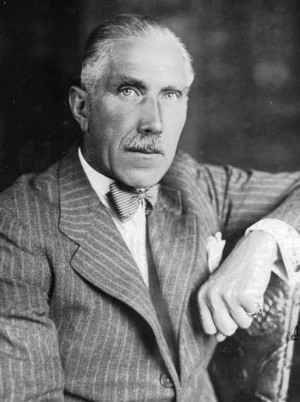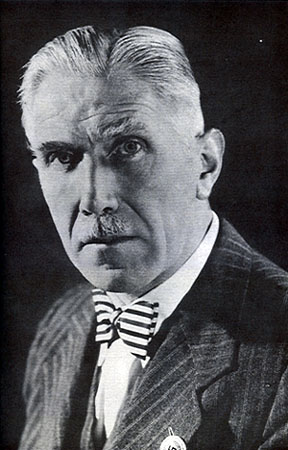
It is held that it was largely he who, believing that Hitler could be controlled once he was in the government, persuaded Hindenburg to put aside his scruples and approve Hitler as chancellor in a cabinet not under Nazi Party domination. Named vice-chancellor on January 30, 1933, with Adolf Hitler replacing him as chancellor, he was granted the right to sit in on every meeting between Hitler and Hindenburg. Entering politics through the Centre Party, Paul von Hindenburg appointed him Chancellor of Germany on June 1, 1932, only to be forced to resign on the following November 17. Rejoining the army on active service during the Great War, first on the Western Front and successively as an officer in the Middle East, he was promoted to the rank of lieutenant-colonel in 1918. Born to a rich and noble Roman Catholic family, Franz von Papen was trained as an army officer before entering the diplomatic service in 1913 as a military attaché to the German ambassador in the United States. Trying unsuccessfully to restart his political career in the 1950's, he retired to the castle of Benzenhofen in Upper Swabia, publishing in his later years a number of number of books including his memoirs. Acquitted, with the court stating that in its view he had committed a number of "political immoralities" which actions were not punishable under the "conspiracy to commit crimes against peace", he was sentenced eventually to eight years in prison by a West German de-nazification court but was released on appeal in 1949. Arrested by the Americans at his own home in April 1945, he was one of the defendants at the main Nuremberg War Crimes Trial. Appointed ambassador in Austria and later in Turkey, surviving a Soviet assassination attempt, Hitler awarded him the knight's cross of the Military Merit Order. However, von Papen and his allies were quickly marginalized by Hitler, resigning his position after the Night of the Long Knives during which some of his confidants were killed by the Nazis.

He was later sentenced to an 8-year prison sentence by a West German de-Nazification court but was released after 2 years.Politician. Papen was indicted for war crimes in the Nuremberg Trials after World War II but was acquitted of all charges later.

He was removed from the government after the “Night of the Long Knives” in 1934 and then served as an ambassador to Austria and Turkey. He later returned as the vice chancellor under Hitler in 1933. His failure to gain the support of the ‘Reichstag’ led to his dismissal from the chancellor’s post and the appointment of General Kurt von Schleicher in his place. Papen was a battalion commander during World War I and was appointed as the chancellor by President Paul von Hindenburg in 1932.


He was instrumental in financing the Mexican Revolution and organizing the sabotage of installations in the United States. He was a military attaché in Mexico and the U.S. He served in the ‘German Army’ as a ‘General Staff’ officer from 1898. Franz von Papen was a German politician and diplomat who served as the chancellor of Germany in 1932 and also as the vice chancellor under Adolf Hitler from 1933 to 1934.


 0 kommentar(er)
0 kommentar(er)
